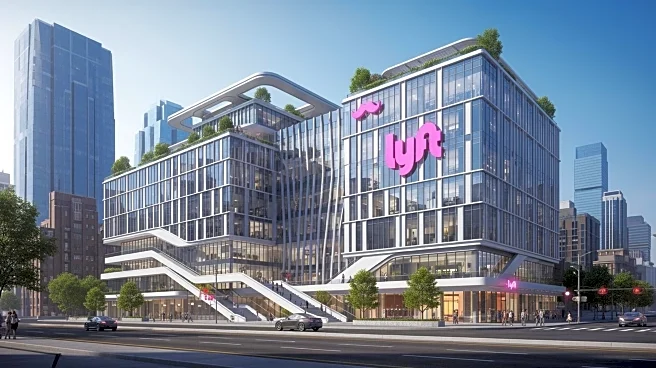What's Happening?
Lyft, the California-based rideshare company, is set to expand its Canadian operations by opening a new office in Toronto's financial district in 2026. This new location will serve as a major tech hub
and home base for several hundred team members. The expansion reflects Lyft's commitment to the Canadian market and its global growth strategy, which has seen a 20% increase in rides year-over-year in 2025. Lyft plans to employ hundreds across engineering, product, operations, and marketing in Toronto. The company has been active in Canada since 2017, offering rides in Toronto, Longueuil, and Montreal, and managing Bikeshare systems in Toronto and Quebec. This expansion also includes partnerships with local charities to support food scarcity initiatives and job training for Toronto youth.
Why It's Important?
Lyft's expansion into Toronto signifies a strategic move to strengthen its international footprint and diversify growth beyond its core U.S. market. The Canadian market has shown significant growth, with rides increasing by over 20% in the first half of 2025. This expansion aims to attract local talent from Toronto's large technology workforce, enhancing Lyft's competitive edge in the rideshare industry. Additionally, the partnerships with local charities and initiatives for youth job training reflect Lyft's commitment to social responsibility and community engagement, potentially boosting its brand image and customer loyalty in Canada.
What's Next?
Lyft's new Toronto tech hub is expected to open in the second half of next year, making the city its second-largest tech center after San Francisco. The company will continue to build on its existing Canadian footprint, aiming to attract local talent and expand its workforce. Lyft's acquisition of European mobility platform FreeNow earlier this year also indicates potential future expansions into other international markets. As Lyft strengthens its presence in Canada, it may face increased competition from other rideshare companies, prompting further innovations and strategic partnerships.
Beyond the Headlines
Lyft's expansion into Toronto not only highlights its growth strategy but also raises questions about the impact on local transportation dynamics and urban planning. The increased presence of rideshare services could influence public transportation usage and traffic patterns in the city. Moreover, Lyft's partnerships with local charities and initiatives for youth job training may set a precedent for other companies to engage in similar community-focused efforts, potentially leading to broader social and economic benefits.








